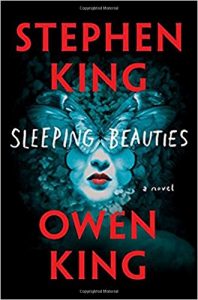 I have been reading the new Stephen King book for like two months, which is just strange. I mean, there were various reasons behind the delay. I’ve been really busy at work all the time, for one, and a shoulder injury made me loathe to carry it around, for another. (I mean, the injury was not entirely debilitating, and neither is this the biggest book ever printed, but the two factors did not play well together.) These are all true facts, but at the same time, I don’t think any of them was the real problem.
I have been reading the new Stephen King book for like two months, which is just strange. I mean, there were various reasons behind the delay. I’ve been really busy at work all the time, for one, and a shoulder injury made me loathe to carry it around, for another. (I mean, the injury was not entirely debilitating, and neither is this the biggest book ever printed, but the two factors did not play well together.) These are all true facts, but at the same time, I don’t think any of them was the real problem.
Sleeping Beauties tells the story of a world without women, more or less. They’re all here, but once they fall asleep, they get shrouded in a mysterious cocoon and don’t wake up. (Well, they do, for brief periods, if you are too insistent; but that’s a bad idea.) Half the story deals with the world’s, which is mostly to say men’s[1], reactions to this sudden new reality, mostly via the small Appalachian town that acts as the setting. The other half deals with the supernatural underpinnings of the event, and what this all means to the women who are cocooned away.
That first half, wrapped up in a hypothetical reality, no matter how potentially troubling, is where the book shines. There are heroes and villains, small petty vindictive bullies, understandable antagonists, helpless children, and everyone in between. Stephen King has always been a deft master of interweaving motivations, and nothing much has changed in this regard. The second half, in which spoilers abound, is… well, it’s two things.
I don’t know much about Owen King[2], but I do not assume that he is what of this book I didn’t like. At least, not specifically. Because, the first thing is, King’s biggest flaw in my estimation is that his explanations sometimes get too big for him[3], and end up unsatisfying. That’s less true here than in some cases[4], but still highly visible. Intertwined with this is the second thing which is: two men are not really qualified to write about how women would deal with the spoilers I’m not going into. This is not my feminism talking, although it could be; it’s more that the outcomes on the page simply didn’t feel true to life.
Anyway, I still liked it. But it is definitely flawed.
[1] There are definitely a lot of women striving to stay awake, and they matter to the plot. But not, thematically, to this half of the story. If you find that to be some measure of problematic, know that you are not alone.
[2] The default author’s son, and co-writer of this book, in case you didn’t use the mouseover text.
[3] This is not the proper phrase for what I mean, but I cannot figure out something better.
[4] For example, Under the Dome, which would have been better if no explanation had been offered. The only worse answer I can think of is the one the TV show came up with.
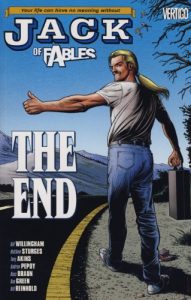 The final volume of Jack of Fables is hard to review for two reasons. If I’m being honest with myself, the series had outstayed its welcome since probably the big crossover, or at the very latest whichever book after that involved the dragon. So for my perspective: I’m glad it’s over. But that’s an opinion, not a review.
The final volume of Jack of Fables is hard to review for two reasons. If I’m being honest with myself, the series had outstayed its welcome since probably the big crossover, or at the very latest whichever book after that involved the dragon. So for my perspective: I’m glad it’s over. But that’s an opinion, not a review.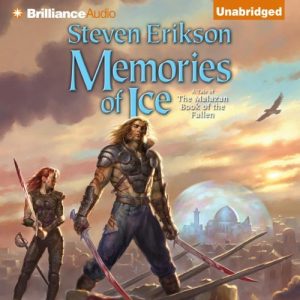 My original review of
My original review of 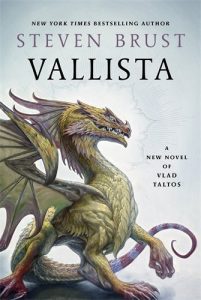 New Vlad book! Which you’ll know if you’re a long time reader here is kind of a big deal. You’ll also know that the series is coming towards an end[1], which explains why I can say very little. Basically, Vlad Taltos is an assassin, he’s made powerful enemies and powerful friends, and this particular book is more about the latter than the former. Worth knowing:
New Vlad book! Which you’ll know if you’re a long time reader here is kind of a big deal. You’ll also know that the series is coming towards an end[1], which explains why I can say very little. Basically, Vlad Taltos is an assassin, he’s made powerful enemies and powerful friends, and this particular book is more about the latter than the former. Worth knowing: 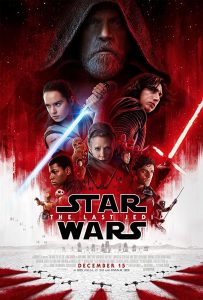 I’ve seen
I’ve seen 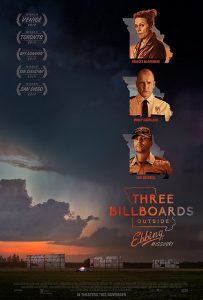 , which is about, well, honestly the title is not wrong, you know? You see, some amount of time has passed since Frances McDormand’s daughter was killed, and she is unhappy with the speed of justice, so she takes matters into her own hands via the powers of advertising!
, which is about, well, honestly the title is not wrong, you know? You see, some amount of time has passed since Frances McDormand’s daughter was killed, and she is unhappy with the speed of justice, so she takes matters into her own hands via the powers of advertising!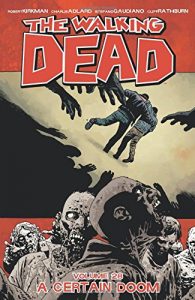 Remember that time when people were in danger from zombies instead of each other? I mean, you don’t, because that was like 15 books ago, and nobody but me has read anywhere near that far in the Walking Dead. The good news is, if you jumped back into the series with
Remember that time when people were in danger from zombies instead of each other? I mean, you don’t, because that was like 15 books ago, and nobody but me has read anywhere near that far in the Walking Dead. The good news is, if you jumped back into the series with  I have been reading the new Stephen King book for like two months, which is just strange. I mean, there were various reasons behind the delay. I’ve been really busy at work all the time, for one, and a shoulder injury made me loathe to carry it around, for another. (I mean, the injury was not entirely debilitating, and neither is this the biggest book ever printed, but the two factors did not play well together.) These are all true facts, but at the same time, I don’t think any of them was the real problem.
I have been reading the new Stephen King book for like two months, which is just strange. I mean, there were various reasons behind the delay. I’ve been really busy at work all the time, for one, and a shoulder injury made me loathe to carry it around, for another. (I mean, the injury was not entirely debilitating, and neither is this the biggest book ever printed, but the two factors did not play well together.) These are all true facts, but at the same time, I don’t think any of them was the real problem.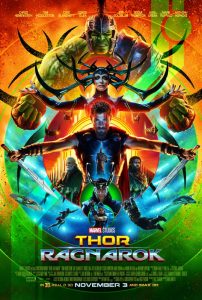 The problem with reviewing a new Marvel movie is the same as the problem with reviewing a new Dresden Files or Vlad Taltos book: too much accumulated past knowledge is required.That is, the only way to come close to getting a coherent thought out of me is if I assume you are aware of everything that has come before. Otherwise, I’m bound to spoil for previous movies.
The problem with reviewing a new Marvel movie is the same as the problem with reviewing a new Dresden Files or Vlad Taltos book: too much accumulated past knowledge is required.That is, the only way to come close to getting a coherent thought out of me is if I assume you are aware of everything that has come before. Otherwise, I’m bound to spoil for previous movies.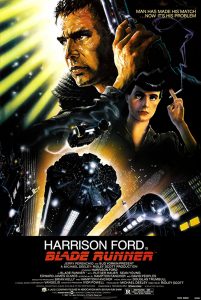 Today I learned I’d never seen
Today I learned I’d never seen 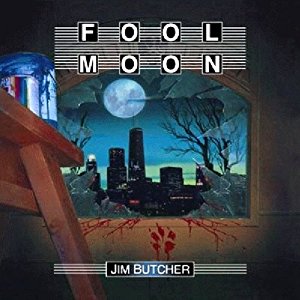 I wish I could say I am horribly backlogged. That would be amazing next to the reality, which is that I just haven’t been doing much of anything. Too busy at work, too busy fighting with my broken comics collection, too busy watching TV. I mean, I’ve done other things in there I’m happy about, but finished books and new movies are not among them.
I wish I could say I am horribly backlogged. That would be amazing next to the reality, which is that I just haven’t been doing much of anything. Too busy at work, too busy fighting with my broken comics collection, too busy watching TV. I mean, I’ve done other things in there I’m happy about, but finished books and new movies are not among them.